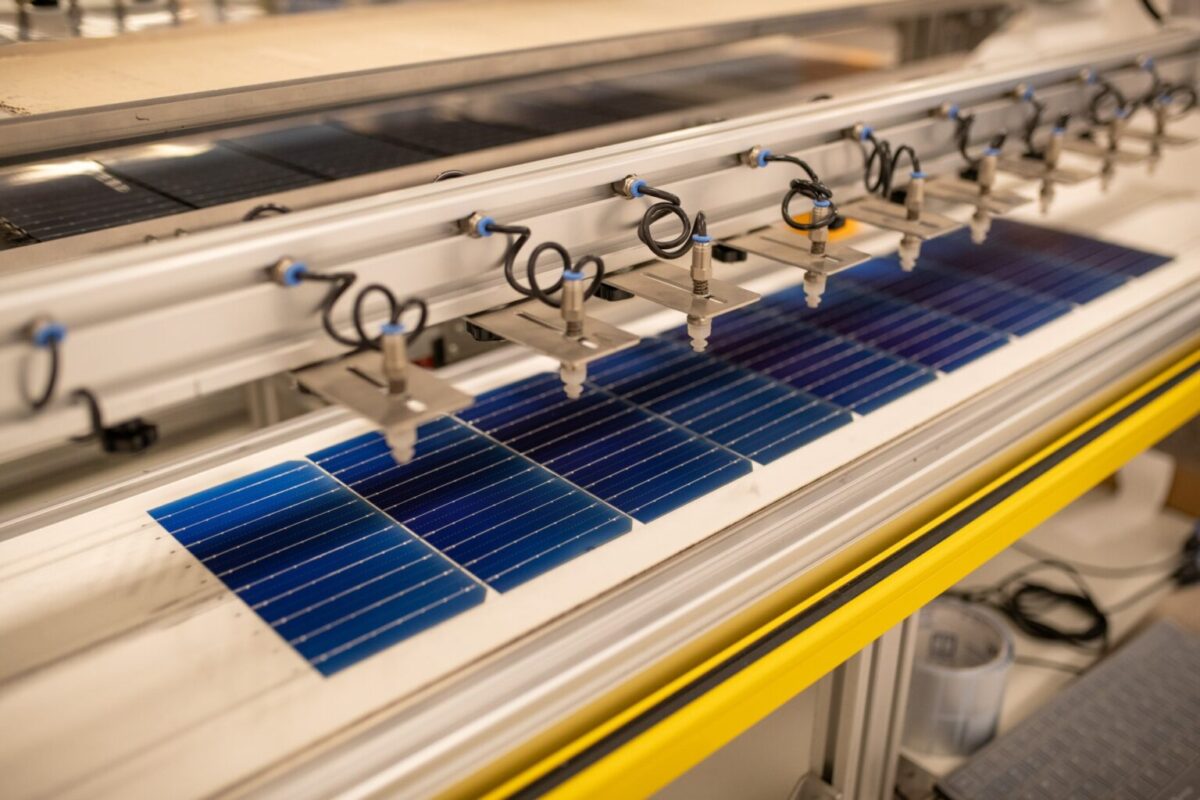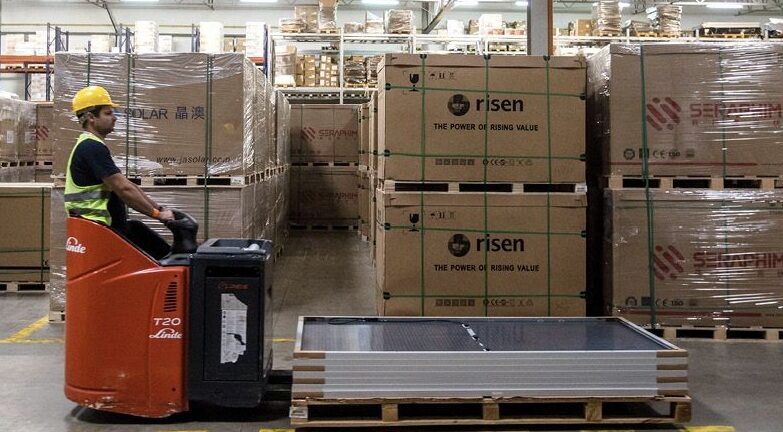Australian Prime Minister Anthony Albanese was set to visit the decommissioned coal-fired Liddell power station in New South Wales this week to formally announce the AUD 1 billion Solar SunShot program. The scheme is designed to increase the number of solar panels that are made in Australia.
More than 3.7 million Australian homes have installed rooftop solar – the highest uptake rate in the world. But only about 1% of those panels are locally manufactured, with Adelaide-based Tindo Solar being the only homegrown solar panel manufacturer.
The federal government hopes to change that with its new Solar SunShot program. It will provide subsidies, grants and other forms of support to expand Australia’s place in the global solar manufacturing supply chain.
In a statement, Albanese said that Australia “should not be the last link in a global supply chain built on an Australian invention … We have every metal and critical mineral necessary to be a central player in the net zero transformation, and a proven track record as a reliable energy producer and exporter. Historically, Australia has been good at going from the mining pit to port, and long may this continue. But the Australian government will also invest in the path from pit to panels and capture more value for our economy and workforce.”
While the details of the Solar SunShot program remain scant, the government said the Australia Renewable Energy Agency (ARENA) will consult the industry to design and deliver the initiative.
The government said in a statement that “ARENA will look at the entire supply chain from ingots and wafers to cells, module assembly and related components, including solar glass, inverters, advanced deployment technology and solar innovation.”
The consultation is expected to commence in the middle of April.
The announcement has been enthusiastically welcomed by the industry, with 5B Chief Executive Officer David Griffin calling it a “a very positive development” for Australian solar manufacturing.
“This clear action plan from the government will make innovative, locally manufactured solar technologies more scalable, for Australian manufacturers to meet the energy transition demand,” he said. “Strategic policies like this have catalyzed solar manufacturers in overseas markets, so we know how significant a boost it provides for home-grown companies like 5B.”
The government’s Solar SunShot program comes after a major report from the Commonwealth Scientific and Industrial Research Organisation (CSIRO) last year that mapped out how Australia could develop a domestic silicon and solar cell supply chain, from mining through to manufacturing.
The report said that despite Australia’s world-leading role in solar research and development, and its world-leading uptake of rooftop PV, its reliance on overseas supply chains remains a major weak spot.
Clean Energy Council (CEC) Chief Executive Kane Thornton said the SunShot program is the “missing piece of the puzzle” to establish a strong sovereign manufacturing capability that “captures this innovation and expertise to meet more of the extraordinary demand, both here and overseas” for PV-related equipment.
“Australia has led the rest of the world in the research, development and uptake of rooftop solar systems, but we have thus far missed the opportunity to manufacture more of these components here at home,” he said. “This is about to change.”
The announcement of the Solar SunShot program comes after legislation was introduced this week to establish the Net Zero Economy Authority to “catalyze investment” in a clean energy future made in the regions.
In parallel to the launch of the Solar SunShot program, the New South Wales government rolled out its Net Zero Manufacturing Initiative, with the AUD 275 million first round now open to support workers, small businesses, manufacturers and innovators to take advantage of the transformation of the state’s energy grid.
New South Wales Energy Minister Penny Sharpe said the initiative will strengthen the state’s manufacturing sector.
“This will see NSW households putting NSW made solar panels on their roofs to deliver long term energy bill savings and a strong domestic renewable manufacturing sector,” she said.
This content is protected by copyright and may not be reused. If you want to cooperate with us and would like to reuse some of our content, please contact: editors@pv-magazine.com.




7 comments
By submitting this form you agree to pv magazine using your data for the purposes of publishing your comment.
Your personal data will only be disclosed or otherwise transmitted to third parties for the purposes of spam filtering or if this is necessary for technical maintenance of the website. Any other transfer to third parties will not take place unless this is justified on the basis of applicable data protection regulations or if pv magazine is legally obliged to do so.
You may revoke this consent at any time with effect for the future, in which case your personal data will be deleted immediately. Otherwise, your data will be deleted if pv magazine has processed your request or the purpose of data storage is fulfilled.
Further information on data privacy can be found in our Data Protection Policy.